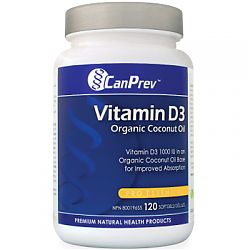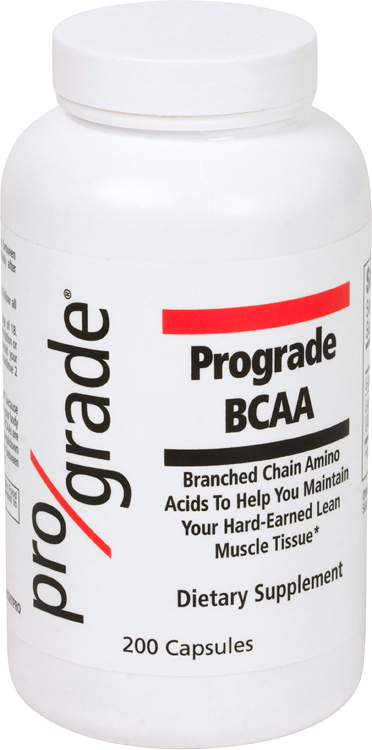
The 3 week Diet..





In all, there are 13 vitamins that are essential to human life. They come from a variety of sources and benefit the body in a variety of ways. If you’re not getting enough of a vitamin, you may become sick or experience some other ailment. If you take too much, you may be at risk for harmful effects. So, how do you keep everything straight? With this blog, we’ll help you sort out one of these crucial vitamins—vitamin D.
Vitamin D is naturally occurring in a few foods like fatty fish, beef liver, and egg yolks. In addition, many foods are fortified with vitamin D—infant formula, milk, breakfast cereal, orange juice, and other food products. Lastly, many people take vitamin D supplements to ensure adequate intake.
The most common way to get vitamin D is by being in sunlight. When the skin is exposed ultraviolet rays, the body triggers an internal process that creates vitamin D. Researchers recommend spending 5-30 minutes in the sun, without sunscreen, at least twice a week between the hours of 10 am and 3 pm in order for the body to create sufficient amounts of vitamin D.
As you can imagine, this sunlight requirement is hard to come by in colder climates or for those who don’t get outside often. It’s also nearly impossible to reach the recommended daily intake for vitamin D by food sources alone. In fact, according to health experts, at least 10 percent of the general population and up to 40 percent of African Americans are vitamin D deficient.
Vitamin D deficiency is a serious issue. We’ve known for years that vitamin D plays an important role in the development and maintenance of healthy bones, but recent scientific studies point toward vitamin D playing a more critical role in overall health and wellness. According to the National Institutes of Health, there is a growing body of research that suggests the vitamin might play some role in the prevention and treatment of type 1 and type 2 diabetes, high blood pressure, multiple sclerosis, and other medical conditions.
Cancer
A recent study published in Clinical and Experimental Metastasis suggests that taking a high dose of vitamin D may help prevent or treat some aggressive types of breast cancer. It has also been reported that “maintaining a sufficient serum level of vitamin D may prevent up to 70 percent of breast cancer cases.”
Dr. Oz goes so far to say that vitamin D may be “the key supplement to preventing cancer.” He cites evidence that points to this super-vitamin as being effective against colon cancer, breast cancer, and uterine cancer.
The Common Cold
A study from Pediatrics recently reported that supplementing children with vitamin D could decrease their chances of catching a cold. The study looked at 247 vitamin D-deficient children. Roughly half of the children were given milk fortified with vitamin D on a daily basis. Those children had 50% fewer colds than the children who went unsupplemented.
Alzheimer’s Disease
A new study from the Journal of Gerontology points to vitamin D as being able to prevent or delay the onset of Alzheimer’s Disease. This study looked at over 6,000 elderly women over a four-year period. The women with the lowest vitamin D intake had a reportedly increased odd of mental impairment.6 Other recent studies have produced similar results.
Osteoporosis
The National Institutes of Health estimates that more than 40 million Americans are at risk of developing osteoporosis or already have the bone-deteriorating disease.1 Calcium is the main player in osteoporosis, but vitamin D has an important role, too. Without vitamin D, the body’s small intestines are unable to absorb the calcium it needs for healthy bone mass. When taking vitamin D and calcium supplements, postmenopausal women and older men have seen small increases in bone mineral density throughout the skeleton.
Research on vitamin D continues, but it’s already quite apparent that an adequate intake of the vitamin is critical to good health. You can reference the National Institutes of Health daily recommended amounts to see if you’re getting enough vitamin D. If your diet needs some help, you may want to increase your consumption of fortified foods or look into vitamin D supplements. Dr. Oz recommends taking a daily supplement of 1000 IU. Be sure to check with you doctor and see what dosage is right for you.
Written by 911HealthShop.com of www.911healthshop.com
Writer for 911HealthShop.com


Prograde Branched Chain Amino Acids may:
![]()
![]()
![]()
![]()
![]()
![]()
![]()
![]()
![]()
![]()
![]()
![]()
![]()
![]()
![]()
![]()
![]()
![]()
![]()
![]()
![]()
![]()
![]()
![]()
![]()
![]()
![]()
![]()


![]()
![]()
![]()
![]()
![]()
![]()
![]()
![]()
![]()
![]()
![]()
![]()
![]()
![]()
BCAA consumption can help limit lean body mass loss as well as increasing visceral fat loss. Visceral fat is the deadly fat that accumulates around your central organs, it is metabolically active and it can wreak havoc on your health. It is one fat that you definitely want to get rid of.
Research shows that when consuming BCAAs daily when training results in significantly less muscle breakdown. Adding just 12 grams of BCAAs per day was all that was needed to achieve this effect. This can be incredibly important while dieting, as maintaining lean mass is vital to maximizing fat loss, as well as to achieve the body composition you began dieting for in the first place!
Recently it has also been shown that leucine is one of the key igniters of protein synthesis. It seems that leucine itself can stimulate insulin production, increase protein synthesis, and modulate blood sugar. This may partly explain why BCAA supplementation while dieting is so effective at maintaining muscle mass, as they stimulate the muscle building components even while in a caloric deficit.
http://oasisnaturals.getprograde.com/ultra-cleanse.html


How should ‘use by’ dates on vitamins be interpreted? (After the date, do vitamins lose potency? Do they become unsafe?)
Reader Question • 706 votes
A
Vitamins and dietary supplements are not required to carry expiration dates on their labels. This is one area where supplements differ from prescription drugs and over-the-counter medications, which are subject to more stringent regulations.
If companies want to print a “use by” or “best by” date on their supplement labels, they can do so voluntarily. But they are then required to honor those claims, said Tod Cooperman, the president of ConsumerLab.com, a popular independent testing company.
“If you see some type of expiration date,” he said, “the manufacturer is legally required to have stability data demonstrating the product will still have 100 percent of its listed ingredients until that date.”
The vast majority of ingredients in supplements decompose gradually over time, which makes them less potent, but not necessarily unsafe — unless, for example, they happen to grow mold. Dr. Cooperman said that to account for the inevitable disintegration, many companies add more than the amounts of ingredients listed on the label, especially vitamins that decompose quickly, like B12 and C.
If stored away from heat, light and humidity, supplements generally last about two years after the date of manufacture before the concentrations fall below 100 percent of the amounts listed on the label. But the window is only about a year for probiotics, liquids and oils, which are more fragile.
“If a probiotic label suggests refrigeration, do so,” Dr. Cooperman said. “Then return the bottle quickly back to the refrigerator before moisture gets in, as this will activate the organisms, causing them to briefly live and then die.”


I.Connect is a tool
that serves one comprehensive purpose: connection.
All life is an expression of oneness and functions optimally when given the freedom to align fully with its divine nature. In a perfect world, we would experience a fully dimensional life with each moment filled with the joy and reverence of creation.
Love and connection is what the I.Connect is about. It establishes a field of life positive connections to enhance our vitality, health and conscious awareness. It supports us as we transform our lives and give our gifts to the world.
https://www.secureinfossl.com/affProgram/I.Connect-Affiliate-Program/91422
https://www.secureinfossl.com/affProgram/I.Connect-Affiliate-Program/91422








Weight and fat are national obsessions because more than two-thirds of Americans are overweight or obese. Most people have misperceptions about weight gain. Common beliefs include low metabolism, high digestion of food, damaged metabolism due to chronic dieting, eating one or two large meals per day instead of many small meals, and consuming too many carbs. All of these are urban legends and are not true. Claude Bouchard from the Pennington Biomedical Research Center in Louisiana has identified five factors linked to weight gain: 1) low muscle mass, which reduces metabolic rate; 2) low fitness, which decreases the capacity to expend calories through physical activity; 3) low testosterone, which is linked to the capacity to build muscle; 4) insensitivity to the hormone leptin, which helps control appetite and metabolic rate and 5) inability to directly burn dietary fat as fuel, which results in greater fat storage. No single factor is responsible for weight gain. The complexity of body fat control helps explain why it is so difficult to lose weight and keep it off. (New Scientist, November 15, 2014